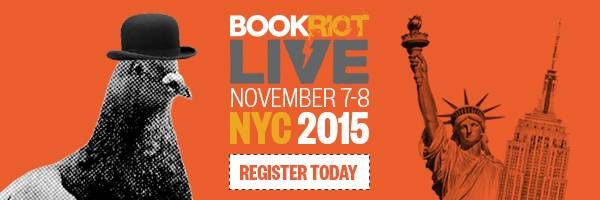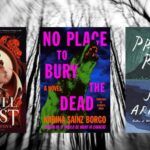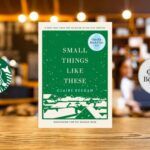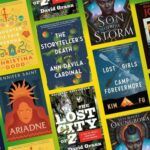
Blackened Figs: Being Overwhelmed By Literary Choice
Judy got her BA in Comparative Literature in Seoul, South Korea, but is now living in Southern California. Judy dislikes writing in the third person, but a short bio is required. Judy doesn’t care for grammar rules or bowling. She loves Herman Melville and doesn’t have the patience or desire to come up with a cute list of alliterations. For another Internet book friend follow her on Twitter @judyannheflin.
____________________
You will never read all the books you want to read. It’s mathematically impossible. Google says that there are nearly 130 million books in the world, and a person who completes 50 books in their yearly Goodreads Reading Challenge for a straight century will only get to about .00004% of that in their lifetime. This is both comforting to the bookworm and anxiety-inducing in a way that only the constant information overload we are surrounded by can be.
We all know that the Internet has changed the way we live and read, but rather than its effects of shortened attention spans and scanning for information, I am more concerned with the expansion of the “Sylvia Plath Fig Syndrome.” In The Bell Jar, Plath visualizes all of her life choices branching out in a fig tree of possibilities. She says, “I wanted each and every one of them, but choosing one meant losing all the rest, and, as I sat there, unable to decide, the figs began to wrinkle and go black, and, one by one, they plopped to the ground at my feet.” More than fifty years later, the amount of options available to us has multiplied exponentially, and we continue to struggle with the same questions. How do we choose who to be, what to know, and what to read? So here we are, in our infinite sea of blackened figs, trying to pick the next book from our growing TBR mountains (whether digital or physical) and carve out a calm enough space in time to actually finish it.
As a person who turns to books for answers, I started searching for fiction that addresses information overload, and what I was first led to was Easy Travel to Other Planets by Ted Mooney. While it begins with a dolphin named Peter making love to a woman and makes no sense at times, it does have an illustration of our Expanded Fig Tree Universe that is astoundingly accurate:
Jeffrey discovers a woman harmed by information excess. All the symptoms are present: bleeding from the nose and ears, vomiting, deliriously disconnected speech, apparent disorientation, and the desire to touch everything. She has a rubber mat rolled up under her arm and is walking around one of the soft new park benches recently installed by the city, palpating it hungrily. A small crowd has collected around her, listening to her complicated monologue: Birds of Prey Cards, sunspot soufflé, Antarctic unemployment. Jeffrey hesitates. I’ve never seen one so far gone, he thinks. But, judging her young enough to warrant hope, he gently takes the rubber mat from the woman, unrolls it upon the pavement, and helps her to assume the memory-elimination posture. After a minute, the bleeding stops. “I was on my way to dance class,” she says to him, still running her ravening fingers over his leather coat sleeves, “when suddenly I was dazzled. I couldn’t tell where one thing left off and the next began.”
We cannot know everything, and trying to will only lead to more confusion. There are search engines, dozens of online book recommendation platforms, people in the “real world,” friends, librarians, professors, and authors to help us navigate the way. I hate that Murakami quote that is so often shared out of context that says, “If you only read the books that everyone else is reading, you can only think what everyone else is thinking.” Reading with others provides a sense of community and an opportunity to voice different interpretations and perspectives. There are a million different ways to read and think about one book. So even if you only read one book over and over for your entire life, each time you will be a little bit different and notice new things.
This is for the people overwhelmed with choice, for the people who have been taught to read in a certain way, and the literature students who have been told that a valuable analysis has nothing to do with personal experience. Sometimes a book is what you need and sometimes it isn’t. Don’t feel guilty about only getting about 50 pages into ten different books and not finishing any of them. We are allowed to be pickier than ever. We have the resources to be selective and to sample. Read selfishly and without apology.
____________________
Book Riot Live is coming! Join us for a two-day event full of books, authors, and an all around good time. It’s the convention for book lovers that we’ve always wanted to attend. So we are doing it ourselves.










